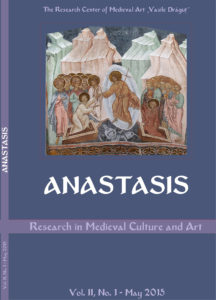La Spécificité roumaine dans le chant ecclésiastique
de type byzantin
The Romanian Specificity in Byzantine Ecclesial Chant
Author(s): Nichifor Nicolae HoriaSubject(s): Music, Middle Ages, Eastern Orthodoxy
Published by: Editura ARTES
Keywords: sacred chant; Romanian tradition; Romanian people; Byzantine Empire; Byzantine psaltic chant; Byzantine music; Orthodox Churc
Summary/Abstract: Since the earliest times, music has always been present at all peoples, as each people tried to embellish its cult and the expression of its religious feeling by means of the most significant and deepest treasures it had collected over time. The Orthodox Church has resorted, in its worship, to Byzantine music. The current Byzantine psaltic chant is the result of the historical evolution of the ancient musical art of the Eastern Orthodox Church with its capital at Byzantium. This is, therefore, a final stage of development, wearing new spiritual clothes, purified by the Christian doctrine, developed and crystallized in the Byzantine Empire and holding its own forms and features. The Romanian people, of Latin origin, on the one hand, and of Byzantine spiritual formation, on the other, and a Christian people since its birth, has fully benefited from the universal treasure of Byzantine chant. The Christian missionaries were the first to bring Byzantine and pre-Byzantine chant in these territories (in the early fourth century already, Saint Sabbas of Buzău is attested to “chant psalms in the church”). Many Romanian musicologists have dealt with the existence and the continuity of a genuine Romanian tradition in the field of the sacred chant. Here, on the territory of our country, the Byzantine chant developed new directions, especially due to the institutionalisation of its teaching and practicing, once the first modern schools of psaltic chant were established, such as the music school of Putna. Afterwards, the whole eighteenth century was characterized by an overt struggle between the Greek and the Romanian chant. However, in spite of the different impediments, the chant in Romanian will gradually come to the fore.
Journal: Anastasis Research in Medieval Culture and Art
- Issue Year: II/2015
- Issue No: 1
- Page Range: 197-206
- Page Count: 10
- Language: French

